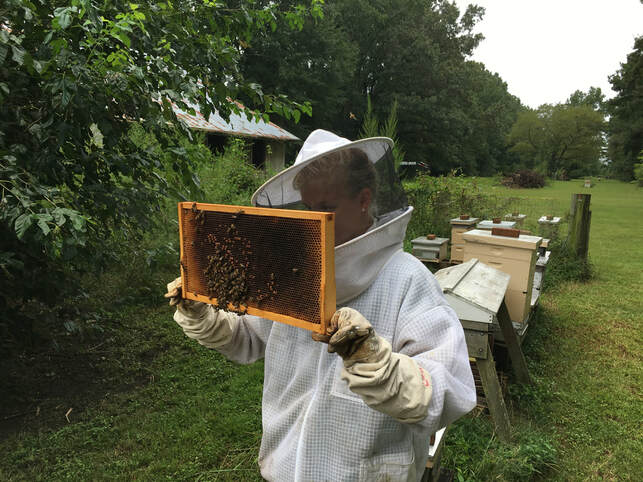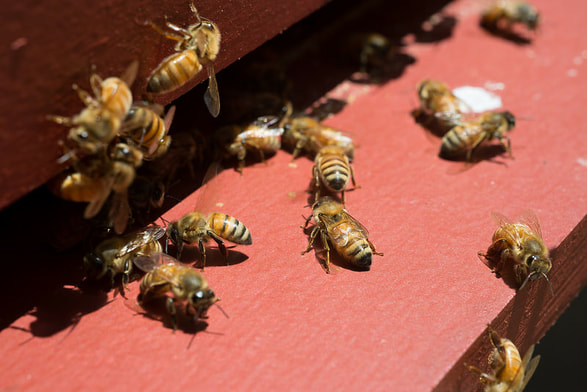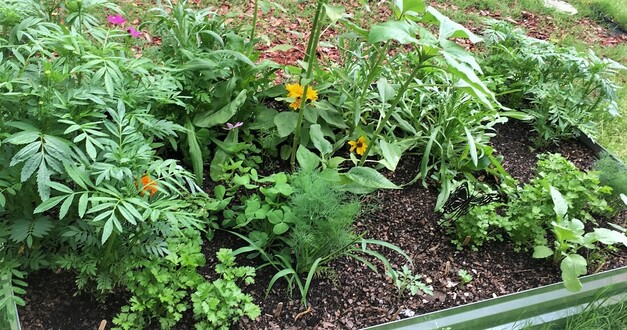"the bee is more honored than other animals, not because she labors, but because she labors for others." -St. john chrysostom
First, Let's Discover.....
What is Happening to Honey Bee populations?

Here are some alarming facts about declining honey bee populations:
- Since 1970, the number of managed U.S. honey bee colonies has dropped from 4 million hives to 2.5 millions hives (according to Jennifer Sass of the Natural Resources Defense Council).
- As of 2016, 7 honey bee species were given the endangered status by the U.S. Fish and Wildlife Service.
- In 2017, about 33% of managed honey bee colonies were lost. This surprisingly high percentage has been typical for beekeepers over the past decade.
now, Let's conserve...
What is killing honey bees?

There are many factors responsible for killing honey bees:
- Neonicotinoid pesticides are suspected to disorient honey bees through interfering with neurotransmitters and weakening them slowly (making them more susceptible to disease). This causes honey bees to lose their way back to the hive, and it disrupts their communication with the colony. Eventually, the lost honey bee dies because it can't survive without the food, water, and protection that the colony provides.
- Environmental toxins (from fertilizers, household chemicals, and industrial chemicals)
- Poor nutrition due to habitat loss (open meadows replaced by shopping malls, housing developments, grassy lawns, etc.) and mono culture (lack of crop variety)
- Parasites and disease including Varroa Mites, Foulbrood, Israeli Acute Paralysis Virus, Tracheal Mites, and Small Hive Beetles
- Honey bee swarm extermination by pest exterminators instead of relocation by beekeepers
It's up to us, Change...
How can You help honey bees?

Fortunately, there are many things that you can do to help honey bees:
- Buy organic foods
- Avoid using pesticides on home gardens and lawns
- Plant a pollinator garden (shown left, pollinator garden at Norfolk Christian Lower School)
- Try to "leave things natural" when possible, avoid replacing meadows (filled with wildflowers that provide nectar and pollen for honey bees) with grass (nothing for honey bees to eat)
- Support local beekeepers (and bees!) by buying local honey, check out www.tidewaterbeekeepers.net/ to buy honey
- Call a beekeeper to remove honey bee swarms in undesirable locations (if you live in the Tidewater area call Tidewater Beekeepers Association's Swarm Coordinator at 757-285-4509 to for free swarm removal)
- SPREAD THE WORD about disappearing honey bees and how to save them
- Attention Teachers and Instructors: EDUCATE others about honey bees using the free Abuzz for Honey Bees lesson materials (found on this website's Resources page)
additional links to honey bee conservation info...
http://www.newyorkbeesanctuary.org/blog/2016/3/3/10-ways-you-can-help-save-the-bees
https://www.organicauthority.com/live-grow/honey-bee-awareness-month-at-whole-food
https://www.usda.gov/media/blog/2017/06/20/being-serious-about-saving-bees
https://www.usda.gov/media/press-releases/2017/06/06/second-lady-karen-pence-secretary-perdue- unveil-beehive-vice
https://pollinator.org/assets/generalFiles/5-Things-Kids-Can-Do-to-Help-Pollinators-2019.pdf
https://beehealth.bayer.us/what-is-bayer-doing/bayer-research/healthy-hives-2020
https://parade.com/580242/leahingram/7-best-plants-to-attract-bees-national-pollinator-week/
Abuzz for Honey Bees
https://www.care2.com/greenliving/7-ways-to-help-honey-bees.html
https://www.facebook.com/NYBeeSanctuary/
https://apicultureanonymous.wordpress.com/2013/07/11/honey-bees-documentaries-watch/
https://www.instagram.com/nybeesanctuary/
https://www.natgeokids.com/au/discover/animals/insects/honey-bees/
https://kids.nationalgeographic.com/animals/honeybee/#honeybee-pink-flower.jpg
https://www.uaex.edu/farm-ranch/special-programs/beekeeping/about-honey-bees.aspx
https://blog.nwf.org/2007/05/honey-bees-whats-the-buzz-about/? _ga=2.154752504.1735545466.1553146759-464334947.1553146759
https://rangerrick.org/rr_videos/honeybees-perform-waggle-dance/
https://rangerrick.org/ranger_rick/busy-buzzy-bees/
https://rangerrick.org/ranger_rick/queen-bee/
https://www.nwf.org/Garden-for-Wildlife/About/National-Initiatives/Pollinator-Month
https://www.abfnet.org/page/71
https://www.facebook.com/beeawarenz/
https://www.beeculture.com
https://americanbeejournal.com
https://www.organicauthority.com/live-grow/honey-bee-awareness-month-at-whole-food
https://www.usda.gov/media/blog/2017/06/20/being-serious-about-saving-bees
https://www.usda.gov/media/press-releases/2017/06/06/second-lady-karen-pence-secretary-perdue- unveil-beehive-vice
https://pollinator.org/assets/generalFiles/5-Things-Kids-Can-Do-to-Help-Pollinators-2019.pdf
https://beehealth.bayer.us/what-is-bayer-doing/bayer-research/healthy-hives-2020
https://parade.com/580242/leahingram/7-best-plants-to-attract-bees-national-pollinator-week/
Abuzz for Honey Bees
https://www.care2.com/greenliving/7-ways-to-help-honey-bees.html
https://www.facebook.com/NYBeeSanctuary/
https://apicultureanonymous.wordpress.com/2013/07/11/honey-bees-documentaries-watch/
https://www.instagram.com/nybeesanctuary/
https://www.natgeokids.com/au/discover/animals/insects/honey-bees/
https://kids.nationalgeographic.com/animals/honeybee/#honeybee-pink-flower.jpg
https://www.uaex.edu/farm-ranch/special-programs/beekeeping/about-honey-bees.aspx
https://blog.nwf.org/2007/05/honey-bees-whats-the-buzz-about/? _ga=2.154752504.1735545466.1553146759-464334947.1553146759
https://rangerrick.org/rr_videos/honeybees-perform-waggle-dance/
https://rangerrick.org/ranger_rick/busy-buzzy-bees/
https://rangerrick.org/ranger_rick/queen-bee/
https://www.nwf.org/Garden-for-Wildlife/About/National-Initiatives/Pollinator-Month
https://www.abfnet.org/page/71
https://www.facebook.com/beeawarenz/
https://www.beeculture.com
https://americanbeejournal.com
